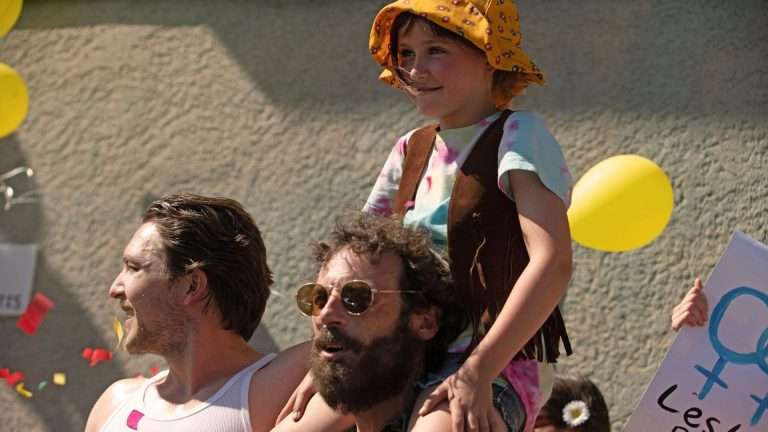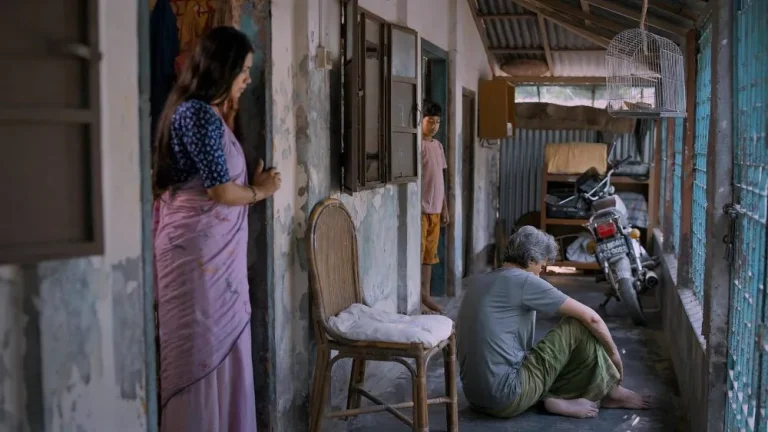All set to premiere at TIFF 2020, French filmmaker François Ozon’s ‘Summer of 85’ is a coming-age film about a friendship/love that often lasts for one season. Known for his sharp satirical wit and a constantly jumbled and enigmatic look into human sexuality, this will be Ozon’s first film at TIFF after 2014 The New Girlfriend. The interview for TIFF press screening explores François Ozon’s process and why he chose to explore unusual friendships yet again.
Ozon: Summer of ’85 was originally a novel by Aidan Chambers: Dance on my Grave. I read the novel in 1985 when I was seventeen years old, and I loved it. It spoke to me personally. The book is playful and inventive. It has drawings, press clippings, changing points of view… I so much enjoyed reading it that when I started to direct short films, I thought: “If one day I make a feature film, my first will be an adaptation of this novel.” And thirty-five years later…It didn’t occur to me until now to make this film because the truth is, more than anything, I wanted to see it as a moviegoer! And I was convinced that someone else was going to make it – an American filmmaker. But to my surprise, it never happened.
Also, Read – Interview with Ronny Sen [Cat Sticks]
After wrapping up By the Grace of God, I reread the book out of curiosity and I was shocked, because I realized that I had already filmed many of the book’s themes: cross-dressing in A Summer Dress or The New Girlfriend; the scene at the morgue in Under the Sand; a relationship with a professor in In the House; the cemetery in Frantz… This book had been fueling my imagination, yet I’d never made the connection. I had forgotten about the novel’s scrapbook-style, which also seemed very cinematographic to me. And I remembered that when at the age of eighteen I had written a first draft of the script with a friend, I had only focused on the love story and had removed everything that seemed secondary at the time, such as the social worker, the professor, the parents, Judaism, and the flashbacks.
Perhaps I couldn’t handle all the different elements back then. Films are made when they’re supposed to be made. This story needed time for me to mature so that I would know how to tell it. In the end, I remained faithful to the novel’s narrative structure. I adapted the story’s background to make it French and I transposed it to the time period when I first read the book. The movie encompasses both the book’s reality and my memories of what I felt when first reading it.
Q. The book’s tone is rather offhand. You approach it from a more dramatic and romantic register.
Ozon: Some scenes were slightly more humorous when we were shooting, but during the editing stage I tended to tone down the comical side to be wholly with the boys, to experience their love story straightforwardly. And in the second half of the movie, with the mourning and what their pact entailed, there was even less room for comedy. It was important to establish a genuine rapport with the characters and to convey the emotion I had felt as a teenager.
It sometimes seemed like I was remaking a first film, but with the maturity, I had acquired from making all my other films. This lent clarity coupled with a tender nostalgia for the time period to the process. If I had been closer to my characters’ ages, my approach would undoubtedly have been more distant.
Q. Summer of ’85 is firstly a love story before being a story about gay love.
Ozon: I was faithful to the book which never problematizes gayness, never makes it an issue, which is very beautiful and modern for the time period. Alex and David love one another and the fact that they are two boys is beside the point. That’s the reason why I dreamed of being able to go see this film when I was a teenager.
Depictions of gay people in the movies in the 1980s were very dark and painful, even before AIDS. Following the codes of the teen movie genre was important to me while making the film. I shot the romance between the boys in a very classic way, without irony, in order to make this a universal love story.

Q. Summer of ’85 could have become a teenage saga, but you have transformed the material, playing on the suspense of what really happened.
Ozon: That’s the big difference the film has with the novel, in which we know from the onset what Alex did and why. The movie lets the mystery dwell and creates false leads which allow the audience to imagine several different possibilities. I adopted the same approach when adapting Ernst Lubitsch’s Broken Lullaby for Frantz.
Q. The scene with the Walkman is an homage to La Boum (The Party), the 1980s French teen cult movie, but also foreshadows how David and Alex are out of synch with each other.
Ozon: This dance scene is clearly the heart of the film: Alex and David aren’t dancing to the same music. One is fidgeting about and laughing while the other is daydreaming, staring at the ball hanging from the ceiling. At this point in the story, we experience this disconnect as if it were a game between them, not suffering. It’s only in retrospect that we can re-interpret the scene as the early warning signs of their separation. To be truthful, I wasn’t even conscious myself of this while shooting the scene, which was shot very quickly and improvised in order to integrate the Rod Stewart song.
Similar to Inteview with François Ozon – Interview with Achal Mishra [Gamak Ghar]
Q. The re-creation of the time period is very realistic, at times giving the impression that we are watching a film made in the 80s.
Ozon: The scenery is realistic, but the 80s are a little idealized as far as the costumes are concerned. Pascaline Chavanne and I were very much inspired by American films of the time period whose eighties folklore I wanted to replicate. I made the film thinking about the moviegoer I was, and of the film I would have liked to see at the time.
Q. And the choice to shoot on film?
Ozon: Today we’re used to digital cinematography, but when making a period movie, the film
is a must! I had already made this decision for Frantz. I was thrilled to return to Super 16, which was the format I used for my first short films. I like its grain which is so specific to this kind of film stock. The result is very beautiful and sensual on the skin in closeups. There is a subtlety in the color that can’t be achieved with digital, which tends to dull things down.
Q. The film takes place in Le Tréport…
Ozon: Le Tréport would be the equivalent of the novel’s Southend-on-Sea in the south of England. It’s nothing like the French Riviera. I felt it was important to anchor the story in the social realities of this working-class seaside town in Upper Normandy. Le Tréport is a city that has largely retained its character – it hasn’t been overly renovated. It’s a very photogenic place with wide and long pebble beaches, cliffs, and1960s low-income housing complexes running alongside the jetty.
Q. Is young Kate’s English nationality an allusion to the book?
Ozon: Kate’s character is Norwegian in the book. I made her English especially because my 1980s experience was heavily influenced by British pop culture, like most teenagers at the time. The soundtrack to our lives was all New Wave: The Smiths, Depeche Mode, The Cure, whose music opens the movie.



![The Kid Detective [2020] Review – Sleuthing in a Notably Darker and Self-Aware World](https://79468c92.delivery.rocketcdn.me/wp-content/uploads/2021/02/The-Kid-Detective-2020-768x512.jpeg)
![County Lines [2019] Review: A gut-wrenching tale of a teenager peddling drugs](https://79468c92.delivery.rocketcdn.me/wp-content/uploads/2021/06/Country-Lines-1-highonfilms-768x576.jpg)

![Blind [2020] Review – A dull, inspid home invasion horror that’s hard to sit through](https://79468c92.delivery.rocketcdn.me/wp-content/uploads/2020/12/Blind-highonfilms-3-768x465.jpg)
![Undine [2020] Review: A garden-variety romance with mermaid-myth garnish](https://79468c92.delivery.rocketcdn.me/wp-content/uploads/2021/05/Undine-1-highonfilms-768x432.jpg)
